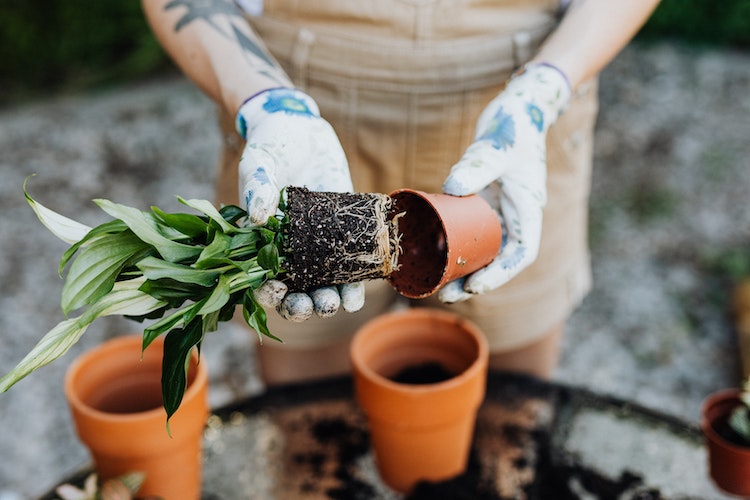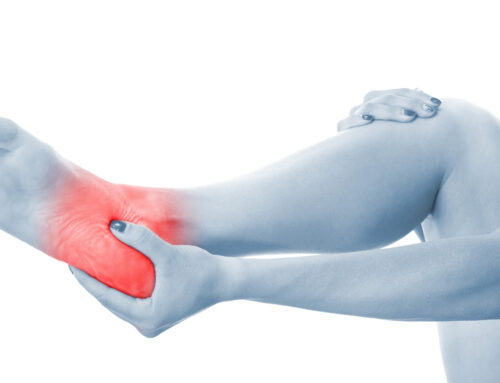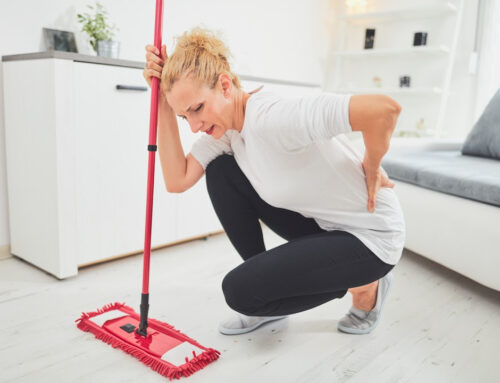6 Tips to Make the Most of Your Summer Garden
 For many of us, gardening is a necessary and cathartic part of our summer routine. Walking, hiking, enjoying new hobbies, and gardening remain the number one way people have remained limber over the last few years. Thankfully, these are all fantastic ways to maintain our mental wellness.
For many of us, gardening is a necessary and cathartic part of our summer routine. Walking, hiking, enjoying new hobbies, and gardening remain the number one way people have remained limber over the last few years. Thankfully, these are all fantastic ways to maintain our mental wellness.
With this being said, it is also not unusual for people to overdo it. Improving, changing, or starting a landscaping project has become popular, which has increased physical activity. This also means an increase in aches and pains if you aren’t mindful of how you move your body.
I’ve compiled a few tips to help you maximize your love for gardening while minimizing the risk of experiencing pain.
- Warm-up/Stretch – Many of us have gone from not having time to engage in hours of gardening daily to having nothing but time to replot our entire yards. Our bodies aren’t accustomed to so much activity or this type of activity. Just as we would prepare our bodies for a new workout, we must prepare our bodies for gardening. All it takes is a few light stretches and some moving to ensure we will not cause an injury. Ask us what the best course of action is for you before proceeding; it’s better to be proactive rather than reactive!
- Drink Water – Staying hydrated is one of the most important steps when working outside. It’s easy to lose track of time, and dehydration can quickly become serious. Always ensure you have water and take a break every 20-30 minutes. Set the alarm on your phone as a reminder, and it wouldn’t hurt to have a stretch with every water break.
- Take Breaks – Speaking of water breaks, breaks, in general, are essential. Gardening is strenuous work, and you’ll likely get caught up in completing tasks and lose track of time. Pay attention to your body’s cues, and ensure you are pacing yourself and snacking throughout the day. If you use a timer, set it for every 20-30 minutes to have a washroom break, drink some water, stretch, have a snack, and get your blood circulating.
- Be Mindful of Large Loads – Bags of soil, mulch, and carrying large planters are a recipe for a back injury if you aren’t careful. If you must, ensure you are bending at your knees and waist. Use your legs to do the heavy lifting rather than your back. In the best-case scenario, you’ll have a wheelbarrow or a buggy to transfer heavy items to the garden. If available, have someone help you with the lifting. And whatever you do, do not lift a heavy item and twist – this can lead to pinched nerves, muscle injuries, and pain that can take weeks to relieve.
- Be present – Spending time planning and maintaining a garden can bring joy. The experience of cultivating and watching your garden or landscaping project come together and grow can be very satisfying. Watering and fertilizing plants, seeing flowers bloom, maintaining a rich growing environment, and being outdoors in the fresh air go unmatched when it comes to self-care. Don’t spend this time rushing through your thoughts and thinking of what you are doing next. Instead, be present in every moment and enjoy your creation!
- Move From Task to Task – Instead of concentrating on one job at a time, move around the garden and vary your tasks to avoid holding the same position for extended periods. This will also allow you to keep your circulation moving and prevent cramping.
Overall, gardening is an excellent use of your time. It allows you to feel productive, spend time outdoors, keep moving, and hopefully have the garden of your dreams by the time you’re finished. These tasks are significant for your body and your mental wellness when you are outside your routine.
If you run into trouble with sudden pain or achiness that is outside the norm or require some guidance with stretches and movements to help you remain agile – call us to see how we can assist you.
Can Chiropractic Improve My Golf Game?

If you are a golf lover, I know there is nothing better than gathering with a group of friends and spending the day on the golf course, especially if it is followed by a meal at the clubhouse and some great conversation!
If you have ever suffered a golfing injury mid-day, you also know how this can ruin what was supposed to be a fun and relaxing time! The repetitive, controlled movements can wreak havoc on your joints and muscles, and if you have any pre-existing conditions or injuries, now is the time they may be aggravated. Golfing injuries occur at the most inconvenient moments, so let’s discuss how you can prevent them with the help of a Chiropractor.
Injuries are like Accidents
There’s no good or bad time for an injury, but let’s get into how we can help you prevent injuries and improve your golf game. Joints and muscles are used for that perfect stroke from your neck to your ankles. If you live a sedentary lifestyle, your risk of injury is more significant than if you are naturally active.
There are many ways Chiropractic can help improve your game, including:
- Reduced back pain
- Increased flexibility
- Better biomechanical function, improving overall functionality
- Increased and improved range of motion
- Improved posture, meaning improved form
How Can Chiropractic Prevent Injuries?
Regular stretching and exercise, along with adjustments, are always the best course of action. It’s common knowledge that even 30 minutes of exercise a day 3-5 times a week will dramatically improve how your body functions and recovers, but stretching is equally as important. Flexibility allows for a greater range of motion and allows the muscles to stretch naturally without overextending.
A critical piece of this prevention comes with making stretching a part of your routine before you begin a game. Warm muscles are more limber, meaning those first few shots may not be as chaotic as they once were. Getting the blood flowing and getting the group of people you’re with moving before the game is a fun warm-up exercise for everyone.
It Starts With a Simple Conversation
Talk to us about the best stretches before and after a game; your golf stretches may not be the same as your cycling stretches or gardening stretches!
Aside from consulting with us about an individualized pre-golf plan, your muscles and joints need lots of water to prevent dehydration and reduce muscle pain the following day. Water is essential if you include alcoholic beverages in your golf day, as alcohol is very dehydrating.
Golf is a great sport, and the social aspect makes it a fun way to get in some low-impact exercise and great conversation. It is a mind/body workout that will make you smile and improve your sleep.
The next time you are at our office, ask about a streamlined approach to exercise, stretching, and adjustments to help improve your golf game.






